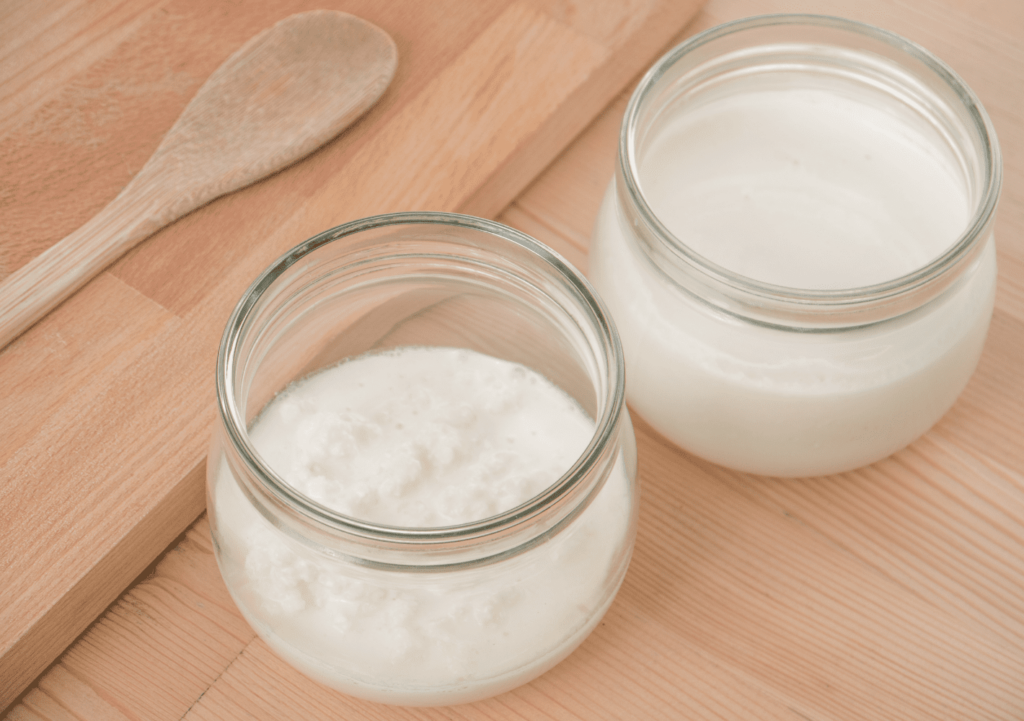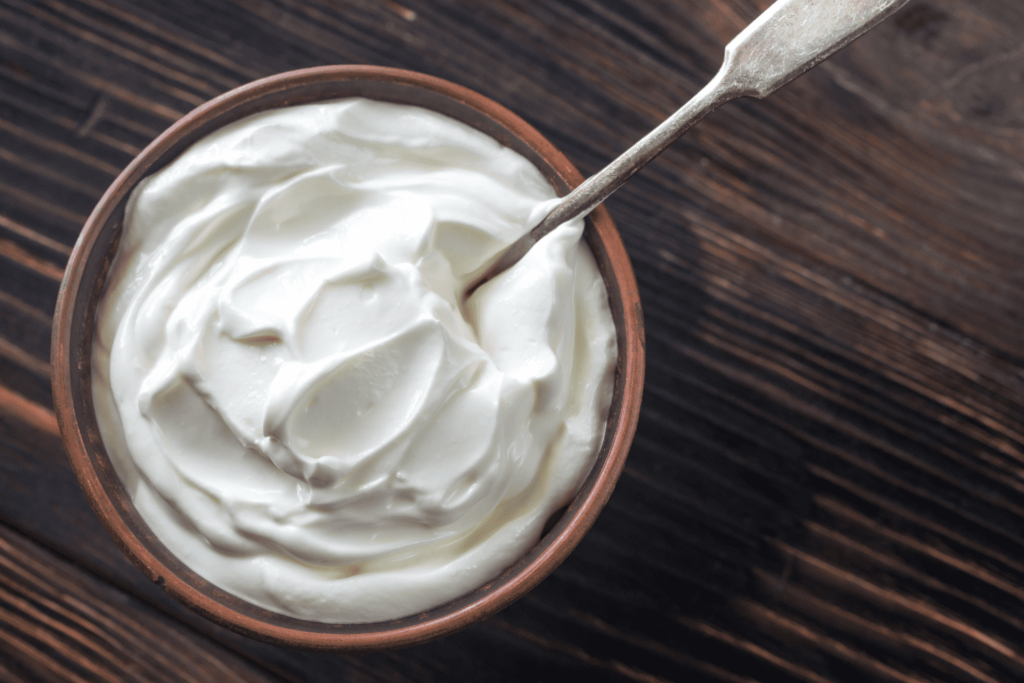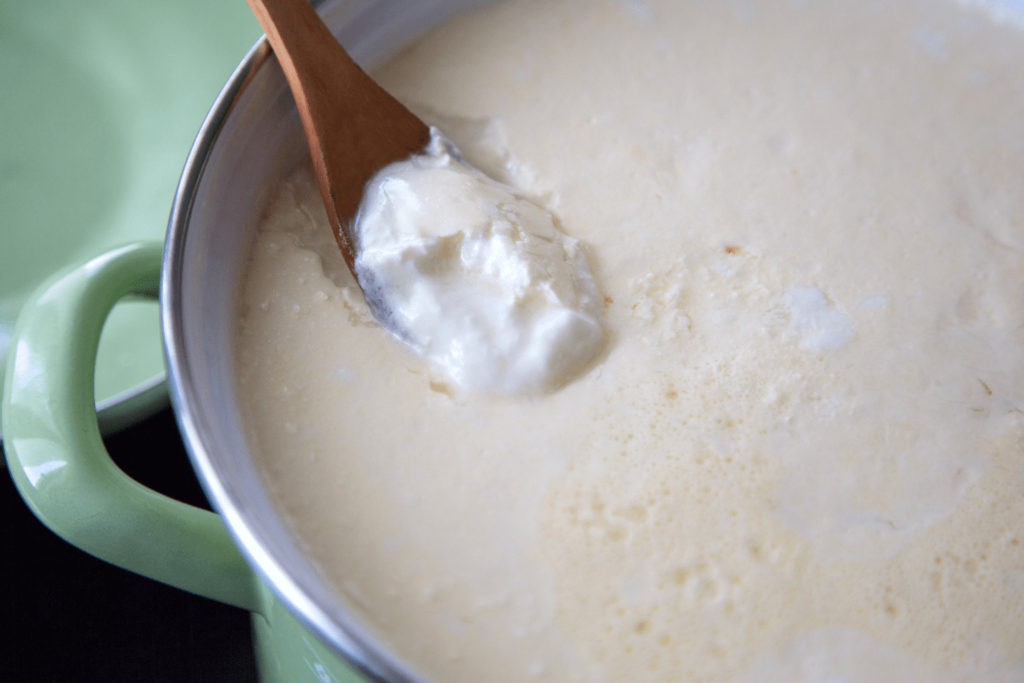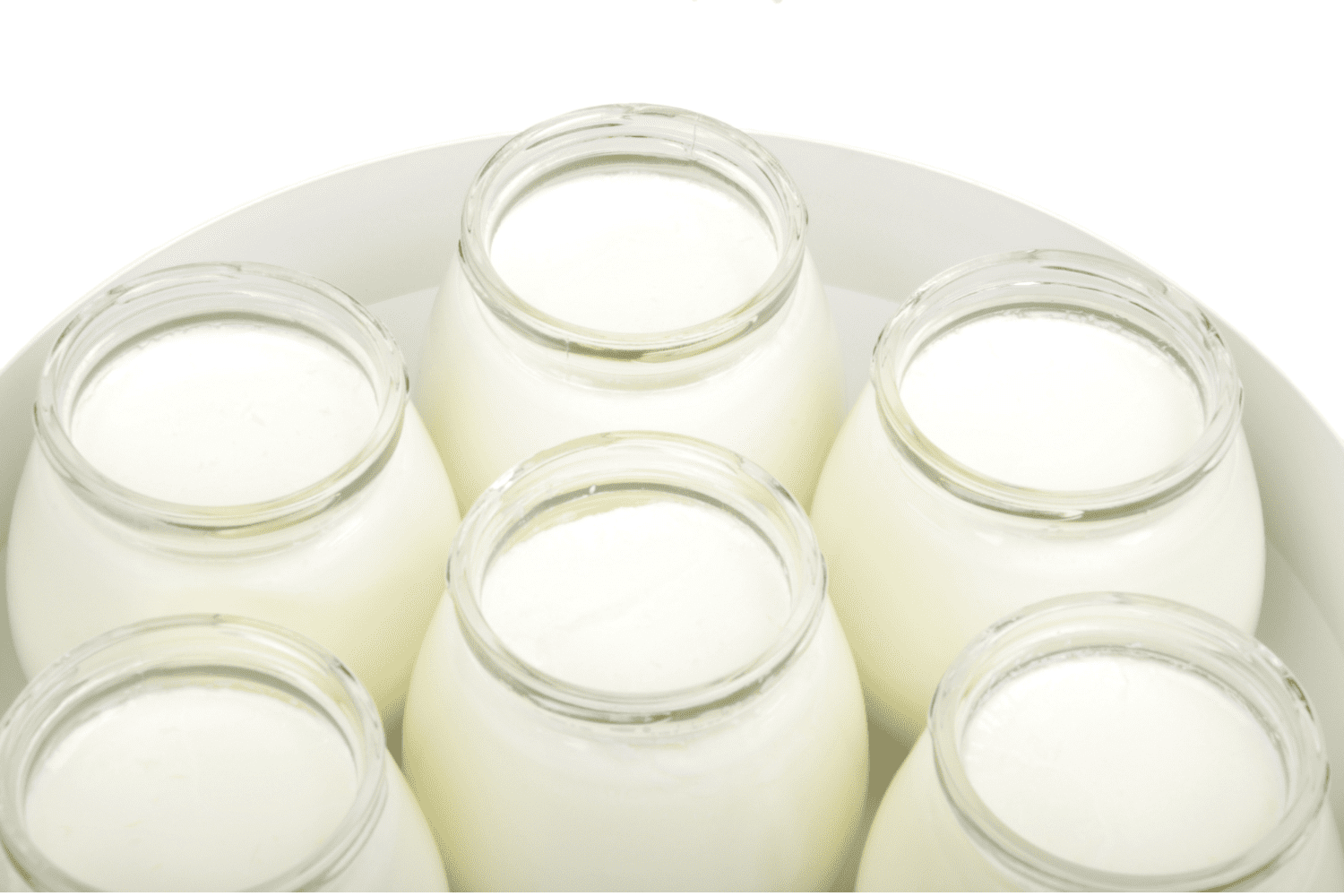Homemade yogurt has gained immense popularity in recent years, with more people embracing the art of making their own creamy, tangy delight. If you’re wondering, “How long does homemade yogurt last?” you’re in the right place. In this comprehensive article, we will explore the shelf life of homemade yogurt and provide valuable insights on how to keep it fresh for longer.
Throughout this article, we will cover essential aspects related to the longevity of homemade yogurt. We will discuss the factors that influence its shelf life, such as storage conditions and proper fermentation. Furthermore, we will delve into the signs of spoilage, ensuring you can identify when your yogurt is no longer safe to consume.
So, whether you’re a yogurt enthusiast or just starting your homemade yogurt journey, join us as we unravel the mysteries of how long homemade yogurt lasts and discover why it’s a superior choice to store-bought options.
What is homemade yogurt?
Homemade yogurt refers to the yogurt that is made from scratch in the comfort of your own kitchen. It is a simple and satisfying process that involves fermenting milk with live bacterial cultures. By harnessing the power of beneficial bacteria, homemade yogurt transforms plain milk into a creamy, tangy, and nutritious delight.
Making homemade yogurt typically involves heating milk to a specific temperature to kill off any undesirable bacteria, then cooling it to an optimal temperature for adding a yogurt starter culture.
This starter culture contains live bacteria that kickstart the fermentation process. The milk and culture mixture is then incubated at a controlled temperature for a specific duration, allowing the bacteria to convert the lactose into lactic acid, giving yogurt its characteristic taste and texture.
Homemade yogurt offers several advantages over its store-bought counterparts. Firstly, it gives you complete control over the ingredients used, ensuring a healthier and more natural product. You can choose the type of milk, the level of fat content, and even experiment with different flavorings and add-ins.
Moreover, homemade yogurt tends to be free from preservatives, additives, and excessive sweeteners commonly found in commercial options. This makes it a wholesome and customizable choice for those seeking a healthier yogurt alternative.
Why homemade yogurt is better?
Homemade yogurt offers several advantages that make it a preferred choice for many. Here are some reasons why homemade yogurt is considered better:
Quality control
Making yogurt at home gives you complete control over the ingredients used. You can choose high-quality milk, yogurt starter cultures, and additional flavorings or sweeteners according to your preferences.
This allows you to create yogurt that is free from artificial additives, preservatives, or excessive sugars commonly found in store-bought options.
Customization
Homemade yogurt allows for endless customization options. You can experiment with different milk types, fat levels, and flavors to create yogurt that suits your taste preferences. Whether you prefer regular, Greek-style, or fruit-infused variations, homemade yogurt offers the flexibility to tailor it to your liking.

Probiotic content
Homemade yogurt contains live and active cultures, providing beneficial probiotics that contribute to a healthy gut microbiome. Probiotics support digestion, boost the immune system, and promote overall well-being.
By making yogurt at home, you can ensure the presence of a high number of live cultures, as commercial yogurts may have reduced levels due to processing or extended shelf life.
Freshness and taste
Homemade yogurt offers unparalleled freshness and taste. You can enjoy the tangy, creamy, and rich flavor of yogurt that is freshly prepared in your own kitchen. The control over fermentation time and process allows you to achieve the desired texture and acidity level, resulting in a more satisfying and flavorful yogurt experience.
Cost-effective
Making yogurt at home can be more cost-effective compared to purchasing individual servings from the store. Once you have the initial ingredients and equipment, you can continue making yogurt using a small amount of starter from each batch, reducing the need for frequent store-bought purchases.
Sustainable option
Homemade yogurt is an eco-friendly choice. By making it at home, you can reduce packaging waste associated with store-bought yogurt cups or containers.
Additionally, it eliminates the need for transportation and energy consumption related to commercial yogurt production and distribution.
How long does homemade yogurt last?
The shelf life of homemade yogurt can vary depending on several factors. One crucial aspect is the fermentation process. The longer the yogurt is fermented, the more acidic it becomes, which can increase its longevity. On average, homemade yogurt can last anywhere from 1 to 2 weeks in the refrigerator.
Proper storage techniques play a vital role in extending the freshness of homemade yogurt. One key factor is temperature control. It is essential to store the yogurt in the refrigerator at a consistent temperature between 36°F (2°C) and 42°F (6°C). Fluctuations in temperature can accelerate bacterial growth and spoilage.

How long does homemade yogurt last in the fridge?
Homemade yogurt typically lasts around 1 to 2 weeks when stored in the refrigerator. However, the shelf life can vary depending on the type of yogurt and any additional ingredients or flavorings used.
Regular homemade yogurt, made with standard milk and a yogurt starter culture, can stay fresh for about 1 to 2 weeks when stored properly in the fridge. It’s important to store it in a sealed container to maintain its freshness.
Greek yogurt, known for its thick and creamy texture, tends to have a slightly longer shelf life compared to regular homemade yogurt. Due to its straining process, Greek yogurt can last up to 2 to 3 weeks in the refrigerator if stored correctly.

5+ Tips storing and freezing homemade yogurt
Proper storage and freezing techniques can help maintain the quality and freshness of homemade yogurt. Here are five tips to effectively store and freeze your homemade yogurt:
Use airtight containers
Transfer the yogurt into clean, airtight containers before storing or freezing. This prevents air exposure and helps maintain its flavor and texture. Mason jars, glass containers, or plastic containers with tight-sealing lids are ideal choices.
Leave room for expansion
When storing yogurt in containers for freezing, leave some space at the top to allow for expansion as the yogurt freezes. This prevents the containers from cracking or bursting.
Label and date containers
To keep track of the yogurt’s storage time, label each container with the date it was made or frozen. This ensures you consume the yogurt within its recommended shelf life.
Store in the coldest part of the fridge
When storing homemade yogurt in the refrigerator, place it in the coldest part, usually the back or bottom shelf. This helps maintain a consistent temperature and prolongs its freshness.
Freeze in small portions
If you plan to freeze homemade yogurt, consider dividing it into smaller portions before freezing. This allows you to thaw only the amount needed, minimizing waste. Use freezer-safe containers or silicone molds for individual servings.
Dehydration
Dehydrating homemade yogurt removes moisture, making it shelf-stable. Spread the yogurt in a thin layer on a dehydrator tray or parchment paper-lined baking sheet. Dry it at a low temperature until it becomes brittle and easily crumbles.
Store the dehydrated yogurt in an airtight container or grind it into a powder for various culinary uses.
Yogurt cheese
Transforming yogurt into yogurt cheese, also known as labneh, can prolong its life. Line a sieve or colander with cheesecloth and place it over a bowl. Pour the yogurt into the cheesecloth and let it strain in the refrigerator for several hours or overnight.
The result is a thick, creamy yogurt cheese that can be stored in the refrigerator for weeks.

Yogurt-based products
Utilize homemade yogurt in various recipes to create yogurt-based products. Make smoothies, popsicles, salad dressings, or even use it as a substitute for sour cream in recipes.
By incorporating yogurt into different culinary applications, you can extend its usefulness and enjoy it in different forms.
Bonus tip
Thaw Slowly in the Refrigerator: When you’re ready to use frozen homemade yogurt, thaw it gradually in the refrigerator rather than at room temperature. This ensures a more even thawing process and helps retain its creamy texture.
What are the signs of spoiled yogurt?
Detecting signs of spoilage in homemade yogurt is essential for ensuring its safety and quality. Here are some common signs to look for:
- Off Odor: If your homemade yogurt emits a sour, rancid, or unpleasant smell, it is likely spoiled. A noticeable change in the aroma is a clear indicator that the yogurt has gone bad.
- Mold or Unusual Growth: The presence of mold, unusual colors, or visible growth on the surface of the yogurt indicates spoilage. Discard any yogurt that shows signs of contamination.
- Abnormal Texture or Consistency: Spoiled yogurt may have a slimy, curdled, or separated texture. If the consistency appears watery or grainy, it is an indication that the yogurt is no longer suitable for consumption.
- Sour Taste: While yogurt has a tangy flavor, an excessively sour taste can indicate spoilage. If the taste is significantly different from what you expect or if it tastes unpleasant, it’s best to avoid consuming it.
It’s crucial to consider safety when it comes to expired yogurt. Consuming spoiled yogurt can lead to foodborne illnesses and discomfort. Bacterial growth in spoiled yogurt can cause digestive issues, including stomach cramps, diarrhea, and nausea. It’s recommended to err on the side of caution and discard any yogurt that shows signs of spoilage or has exceeded its recommended shelf life.
If in doubt about the freshness or safety of your homemade yogurt, it’s best to prioritize food safety and refrain from consuming it. Proper storage, hygiene, and careful observation of signs of spoilage can help ensure that you enjoy your homemade yogurt without any health risks.

Food safety guidelines for homemade yogurt
Maintaining proper food safety practices during the preparation of homemade yogurt is crucial to ensure its quality and safety. Here are some important guidelines to follow:
Hygiene
Cleanliness is paramount when making homemade yogurt. Wash your hands thoroughly with soap and warm water before handling any ingredients or equipment. Clean and sanitize the work surfaces, utensils, and containers to minimize the risk of contamination.
Preventing contamination
Take precautions to prevent contamination and bacterial growth. Avoid cross-contamination by keeping raw ingredients, such as milk, separate from other foods. Use separate utensils for handling different ingredients to avoid introducing unwanted bacteria.
Sterilize equipment and utensils
Before use, sterilize the equipment and utensils used in yogurt preparation. This includes pots, thermometers, stirring utensils, and storage containers. Boiling them in hot water or running them through a dishwasher cycle can effectively sterilize the items.
Use quality ingredients
Start with high-quality ingredients, especially the milk used for yogurt production. Opt for fresh, pasteurized milk to minimize the risk of harmful bacteria. Avoid using milk close to its expiration date.
Additionally, ensure the yogurt starter culture is fresh and within its recommended date of use.
Proper fermentation
Follow the recommended fermentation process and duration. Maintain the appropriate temperature during fermentation to promote the growth of beneficial bacteria and inhibit the growth of harmful ones.
This helps ensure the yogurt reaches the desired acidity level for both safety and flavor.
What is the importance of proper yogurt setting time?
Proper yogurt setting time plays a crucial role in homemade yogurt production. It refers to the period during which the yogurt undergoes fermentation and transforms into its desired consistency and taste. Here are the key reasons why setting time is important:
Flavor development
The setting time allows the yogurt culture to convert lactose, the natural sugar in milk, into lactic acid. This process gives yogurt its characteristic tangy flavor. The longer the setting time, the more pronounced the tanginess. Proper setting time allows the yogurt to develop its desired flavor profile.
Texture formation
Setting time is essential for achieving the desired texture in homemade yogurt. During fermentation, the bacteria produce lactic acid, which causes the milk proteins to coagulate and form a solid gel-like structure. Adequate setting time ensures the formation of a creamy and smooth texture in the yogurt.
Optimal setting time for regular homemade yogurt
For regular homemade yogurt, the optimal setting time typically ranges from 6 to 8 hours. This duration allows sufficient fermentation for the development of flavor and texture while still maintaining a relatively mild taste.
Optimal setting time for thick and creamy yogurt varieties
Thick and creamy yogurt varieties, such as Greek yogurt, require a longer setting time. The optimal range for these varieties is usually between 8 and 12 hours, or even overnight. This extended setting time allows for additional moisture to be drained, resulting in a denser and richer texture.

Nutritional advantages of homemade yogurt
Homemade yogurt offers several nutritional advantages, particularly due to its probiotic content and the impact it has on the digestive system. Here are the key points to consider:
- Probiotic Content: Homemade yogurt is a rich source of beneficial bacteria known as probiotics. During the fermentation process, live cultures convert lactose into lactic acid, creating an environment conducive to the growth of these beneficial bacteria. Probiotics contribute to a healthy gut microbiome and help maintain the balance of good bacteria in the digestive system.
- Gut Health Benefits: The probiotics in homemade yogurt have a positive impact on gut health. They aid in digestion, promote nutrient absorption, and help maintain a healthy intestinal environment. Regular consumption of homemade yogurt can support a healthy digestive system and alleviate certain digestive issues, such as bloating or irregular bowel movements.
- Nutrient Density: Homemade yogurt is a nutrient-dense food. It is a good source of high-quality protein, calcium, and other essential nutrients. Protein is important for muscle development and repair, while calcium contributes to strong bones and teeth. Additionally, yogurt contains vitamins such as B12 and riboflavin, which play roles in energy production and overall health.
- Enhanced Immune Function: The probiotics found in homemade yogurt can positively impact immune function. They help stimulate the immune system, improving its response to infections and diseases. A healthy gut microbiome supported by homemade yogurt can contribute to a strengthened immune system.
- Lactose Digestion: Homemade yogurt is often more easily digestible for individuals with lactose intolerance. The fermentation process breaks down lactose into lactic acid, making the yogurt lower in lactose content. This allows some individuals who are lactose intolerant to tolerate and enjoy homemade yogurt without adverse digestive symptoms.
FAQs
Is it safe to consume homemade yogurt during pregnancy?
Consuming homemade yogurt during pregnancy is generally safe and can provide beneficial nutrients. However, it’s important to exercise caution and follow proper food safety guidelines. Choose pasteurized milk and ensure proper hygiene during yogurt preparation to minimize the risk of harmful bacteria.
Can I reuse the whey leftover from homemade yogurt production?
As for reusing the whey leftover from homemade yogurt production, it can be used in various culinary applications. Whey is rich in protein and can be added to smoothies, used as a marinade, or incorporated into baked goods for added nutritional value.
However, it’s essential to note that whey can be a breeding ground for bacteria, so it should be stored properly in the refrigerator and used within a few days. If you observe any signs of spoilage or an off odor, it’s best to discard the whey to prevent foodborne illnesses.
During pregnancy, it’s always recommended to consult with your healthcare provider or a registered dietitian regarding your specific dietary needs and any concerns related to consuming homemade yogurt or its byproducts. They can provide personalized guidance based on your health condition and pregnancy requirements.
Can I eat yogurt that has passed its expiration date?
Eating yogurt that has passed its expiration date is not recommended. While yogurt can sometimes be consumed safely after the expiration date, it is essential to assess its quality before consuming it. Here’s how you can tell if homemade yogurt has gone bad:
- Check the expiration date: Start by checking the expiration date on the yogurt container. If the date has passed, exercise caution and evaluate the yogurt further.
- Observe the appearance: Look for any signs of mold, unusual colors, or visible growth on the surface of the yogurt. These are clear indications that the yogurt has spoiled and should not be consumed.
- Smell the yogurt: Take a sniff of the yogurt. If it emits a sour, rancid, or unpleasant odor, it is likely spoiled. A noticeable change in the aroma is a sign that the yogurt has gone bad.
- Examine the texture: Spoiled yogurt may have a slimy, curdled, or separated texture. If the consistency appears watery or grainy, it is an indication that the yogurt is no longer suitable for consumption.
How can I tell if homemade yogurt has gone bad?
It’s important to prioritize food safety and avoid consuming homemade yogurt that shows signs of spoilage or has an off smell, appearance, or texture. If in doubt, it’s best to discard the yogurt to prevent the risk of foodborne illness.
Proper storage, careful observation, and adhering to the recommended shelf life can help ensure you enjoy homemade yogurt while it is fresh and safe to consume.
What factors affect the shelf life of homemade yogurt?
Several factors can affect the shelf life of homemade yogurt. Understanding these factors is crucial for maintaining its freshness:
- Temperature: The temperature at which homemade yogurt is stored plays a significant role in its shelf life. Refrigeration at temperatures between 36°F (2°C) and 42°F (6°C) is ideal for slowing down bacterial growth and preserving freshness.
- Storage Conditions: Proper storage conditions contribute to the longevity of homemade yogurt. It should be stored in airtight containers to prevent air exposure and contamination. Additionally, keeping it away from strong-smelling foods can help maintain its flavor.
- Fermentation: The duration and effectiveness of the fermentation process impact the shelf life of homemade yogurt. Adequate fermentation allows the yogurt cultures to develop, increasing acidity and inhibiting the growth of harmful bacteria.
How can I extend the freshness of homemade yogurt?
To extend the freshness of homemade yogurt, follow these tips:
- Proper Packaging: Use airtight containers or jars with tight-sealing lids to store homemade yogurt. This prevents exposure to air and helps maintain its freshness.
- Labeling and Rotation: Label each container with the date of preparation to keep track of freshness. Consume the older batches first, ensuring a rotation that prevents yogurt from exceeding its recommended shelf life.
- Hygiene: Maintain proper hygiene during yogurt preparation. Wash hands thoroughly and use sterilized equipment and utensils to minimize the introduction of harmful bacteria.
- Avoid Cross-Contamination: Prevent cross-contamination by keeping raw ingredients separate from the yogurt and using separate utensils when handling different foods.
Can I eat homemade yogurt if it smells sour?
If homemade yogurt smells excessively sour or has an off-putting odor, it is best to avoid consuming it. While yogurt naturally has a tangy aroma, an unpleasant or strong sour smell can indicate spoilage or the presence of harmful bacteria. Trust your sense of smell and discard any yogurt that has an off odor, as it may pose a risk to your health.
Does the fat content of the milk affect the shelf life of homemade yogurt?
The fat content of the milk used to make homemade yogurt does not significantly affect its shelf life. The primary factors influencing the shelf life are the quality of the milk, proper fermentation, and appropriate storage conditions. Regardless of the fat content, it is important to follow hygiene practices, maintain proper temperatures, and store the yogurt in airtight containers in the refrigerator to preserve its freshness.
It’s worth noting that higher fat content can contribute to a creamier texture and richer flavor in the yogurt. However, the impact on shelf life is relatively minor compared to other factors. Proper handling, storage, and monitoring for signs of spoilage are key to ensuring the safety and quality of homemade yogurt, regardless of the milk’s fat content.
Is it safe to eat homemade yogurt that has mold on top?
It is not safe to eat homemade yogurt that has mold on top. Mold growth indicates spoilage and the presence of harmful microorganisms. Mold can produce toxins that pose health risks when consumed. Therefore, it is crucial to discard any yogurt that shows signs of mold, such as visible growth or unusual colors.
Does adding sweeteners affect the shelf life of homemade yogurt?
Adding sweeteners to homemade yogurt, such as honey, sugar, or fruit preserves, can affect its shelf life. Sweeteners introduce additional moisture into the yogurt, creating a more favorable environment for bacterial growth.
As a result, yogurt with added sweeteners may have a shorter shelf life compared to plain homemade yogurt. It is important to consume sweetened yogurt within the recommended storage time and observe signs of spoilage to ensure its safety.
To maintain the freshness and safety of homemade yogurt, it is recommended to add sweeteners just before consuming or serving. This allows you to enjoy the desired sweetness while minimizing the impact on the yogurt’s shelf life. Additionally, proper storage techniques, such as refrigeration in airtight containers, help to extend the freshness of both plain and sweetened homemade yogurt.
Can I use homemade yogurt in baking recipes?
Yes, homemade yogurt can be used in baking recipes as a versatile ingredient. It can add moisture, tanginess, and a subtle richness to various baked goods. Yogurt is commonly used in cakes, muffins, bread, pancakes, and even as a substitute for sour cream in certain recipes. Its acidity can also contribute to tenderizing and leavening effects in baking.
What is the optimal fermentation time for homemade yogurt?
The optimal fermentation time for homemade yogurt can vary depending on personal preference and the desired flavor and texture. As a general guideline, a fermentation period of 6 to 8 hours is often sufficient for regular homemade yogurt. This duration allows the yogurt culture enough time to convert lactose into lactic acid, giving it a tangy taste and achieving a creamy consistency.
However, it’s worth noting that fermentation time can be adjusted based on individual preferences. Some individuals prefer shorter fermentation for a milder taste, while others may opt for longer fermentation for a more pronounced tanginess. It is recommended to experiment and find the fermentation time that best suits your taste preferences.
How does the climate affect the shelf life of homemade yogurt?
The climate can have an impact on the shelf life of homemade yogurt. In warmer climates or during hot weather, the temperature can rise, potentially accelerating bacterial growth and spoilage. Higher temperatures can create a more favorable environment for the proliferation of harmful bacteria, shortening the shelf life of homemade yogurt.
It is essential to take extra precautions to store yogurt properly in such conditions, ensuring it remains refrigerated at a consistent temperature between 36°F (2°C) and 42°F (6°C) to maintain its freshness for as long as possible.
Does adding probiotic supplements affect the shelf life of homemade yogurt?
Adding probiotic supplements to homemade yogurt does not significantly affect its shelf life. Probiotic supplements are typically in concentrated forms, containing specific strains and higher amounts of beneficial bacteria.
When added to homemade yogurt, these supplements contribute to the overall probiotic content but do not substantially impact the shelf life of the yogurt. The primary factors influencing shelf life remain proper storage conditions, hygiene, and the fermentation process.
It’s important to note that the potency of probiotics may diminish over time, including during the shelf life of homemade yogurt. However, if stored correctly and consumed within the recommended timeframe, the yogurt should still provide beneficial probiotic effects. To ensure the maximum benefit from probiotics, it is advisable to consume homemade yogurt within its recommended shelf life and follow proper storage practices.
Conclusion
Finally, homemade yogurt is a delicious and nutritious treat that many enjoy making in their kitchens. When it comes to the question, “How long does homemade yogurt last,” the answer depends on various factors such as the type of yogurt, storage conditions, and additional ingredients used. On average, homemade yogurt can last around 1 to 2 weeks in the refrigerator when stored properly. However, it’s important to note that different types of yogurt, such as Greek yogurt or flavored variations, may have slightly different shelf lives.
By understanding the factors that affect the shelf life of homemade yogurt and following proper storage techniques, we can prolong its freshness and maintain its quality. Temperature control in the fridge, using airtight containers, and practicing good hygiene are crucial in preserving homemade yogurt. It’s essential to be aware of the signs of spoilage, such as off odor, mold, or abnormal texture, and prioritize food safety by not consuming yogurt that has gone bad.
Homemade yogurt offers numerous advantages over store-bought options, including the ability to customize ingredients, control the fermentation process, and enjoy the benefits of probiotics. By making homemade yogurt, we can not only savor its delightful taste but also embrace a healthier and more sustainable lifestyle.
So, the next time you embark on your homemade yogurt-making journey, remember to consider the recommended shelf life, follow proper storage practices, and savor the creamy goodness of your homemade creation. The journey of homemade yogurt is not only about its longevity but also the joy and satisfaction it brings to your taste buds and overall well-being.